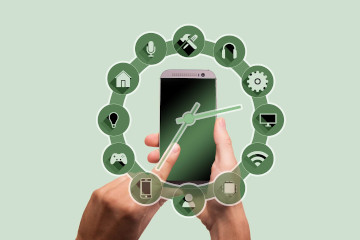

Effective Reporting for Physical Security
For most in the physical security industry, client reporting means simply sending your officer’s daily activity report (DAR) to your customer. While this is a good start, we have observed that reporting in this way, does not give the customer everything they need and want. A more flexible approach to reporting is needed to keep customer satisfaction high. Here are some ideas to help you improve your business.
What Information Customers Want
Remember that every customer is different. Some require a deep understanding of every tag that a guard has touched on his tour. Others only want to know if a patrol is missed or if an incident has occurred. Security Guard companies need to fine tune their systems so that each customer gets exactly what they want.
Customer satisfaction also means providing the necessary information in appropriate amounts. Customers do not want to be saturated with data. But they also do not want to have to hunt. They must be able to easily drill down into the data they need. This means giving an easily readable summary, perhaps even in the subject line of an email, with more detail available if needed. Remember that the detail can include multimedia such as pictures and videos.
When Customers Want Information
Some customers want to see a report every day but many only want it every week, or even at the end of the month. To make a customer happy, you need to configure your reporting to give them the level of detail that they want but give it to them when they want it. Also remember that the timing may depend on what is happening on their property. For example, they might only want a weekly report if nothing unusual occurs but they want an immediate notification if there is an unusual incident. Timing is everything.
How Customers Want Information
In today’s high tech world, there are many channels from which you can provide reports for your customers. You need to have a reporting system that can handle a number of these so that customers can work in a way that is most comfortable for them based on their own habits.
For those customers who live on email, it seems like an obvious choice to send it to them using this channel. The benefit is that they gain a level of comfort seeing regular updates in a format that is comfortable for them. The drawback is that email often is ignored and there is no guarantee that email will be delivered and not get lost, deleted, filtered, stuck or lost in transmission.
For those customers who want constant updates and work in an office, a dashboard on a web portal seems more appropriate. It can be accessed in real-time and also has the advantage of allowing highly interactive behavior, making drilling down to critical details much easier. The obvious disadvantage is that you need to have a browser to access the system, which might present a challenge while travelling or not in front of a computer.
For those customers who want updates on the road, sending short text messages with summaries or alerts makes sense. While little information can be sent, it does help keep mobile customers in touch with their property and assets via your services.
Data is not Information
One thing to avoid is sending a massive amount of data that is not actually useful to your customer. Here is an example. Let’s say a security officer has been driving around on a patrol for about an hour. You could receive you a long list of raw GPS coordinates every 20 seconds. But how easy will that make it for you to visualize where the officer has been? A better solution would be to send you a list of street addresses. This might help you get a better sense of his location and route, but most people cannot look at 180 addresses in a list and get a clear picture in their mind of exactly where that officer has been. A better solution would be to send you a map plotting the officer’s route. All three of these reports contained the same data, but not the same information. Make sure you are sending useful information to you customers if you want to add value.
In Conclusion
A great reporting system will not overload clients with useless data, but will deliver exactly the information that customers want, when they want it, how they want it.
New Kugadi Posts

The hidden challenges of remotely managing operations and why smart automated security technology is so important in mitigating risks.

By using a data-driven approach, companies have a holistic view of how areas perform and can find repeat problem areas to take action. They can better understand if more lighting is needed, extra guards, etc.

Looking at the data you collect greatly helps you run your security guard company